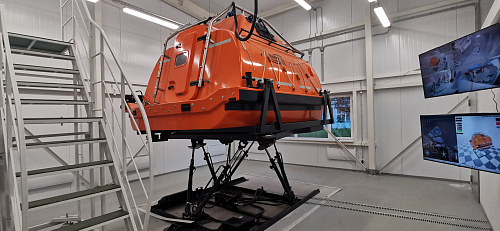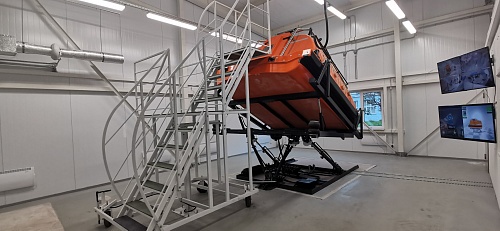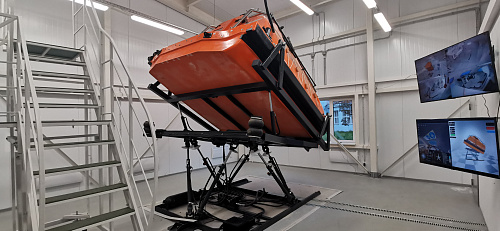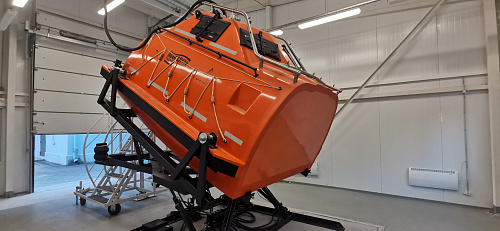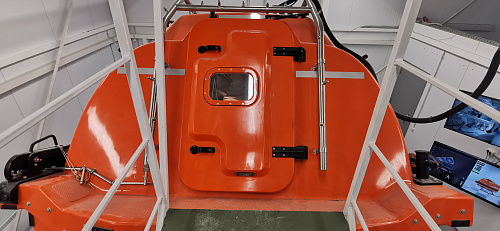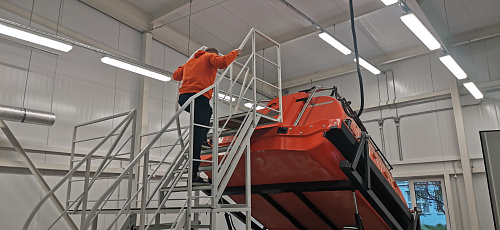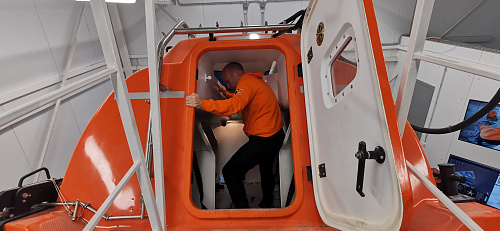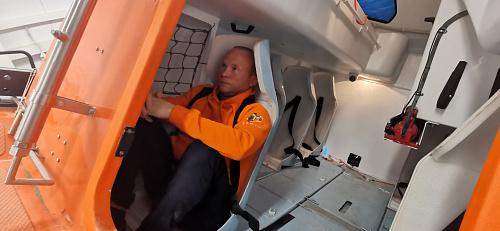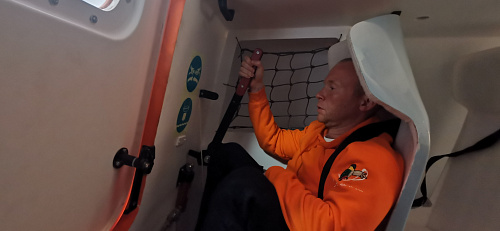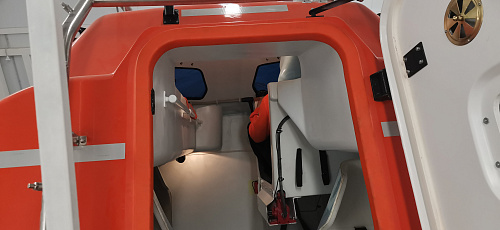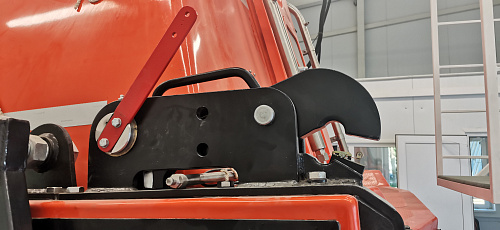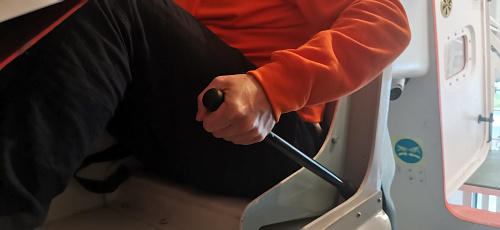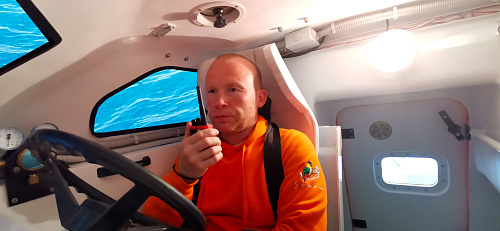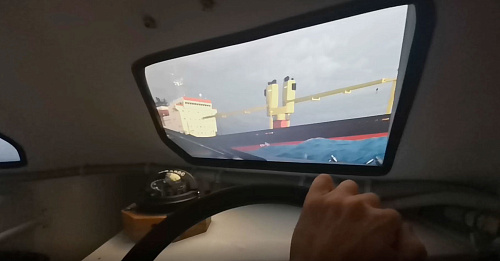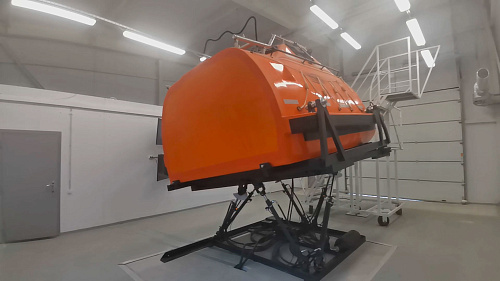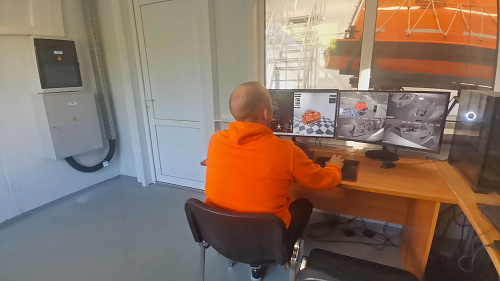Purpose
FFLBS Free-fall lifeboat simulator is intended for training of seafarers who are designated to take charge of free-fall lifeboats in accordance with STCW Code:
- Section A-VI/2 STCW Code “Specification of the minimum standard of competence in survival craft and rescue boats other than fast rescue boats”;
- Section B-I/14 STCW Code “Section B-I/14 Guidance regarding responsibilities of companies”;
- Section A-VI/1, Table A-VI/1-1 “Specification of minimum standard of competence in personal survival techniques”.
-
---------------------------------------------------------------------------------------------------------------------------
- boarding lifeboat,
- freefall launching,
- clear the ship’s side,
- handling and manoeuvring of lifeboats, in different weather conditions, including rough seas , and at night,
- ejection of a lifeboat onto an unequipped beach
- gangway and embarkation station,
- free fall lifeboat model, conforming with LSA Code,
- 6 DoF dynamic platform,
- computer equipment,
- video equipment,
- software that provides the operation of the simulator.
Implementing of simulator into the training process will provide training center conformity with new 2024 edition of IMO Model Course 1.23 on Proficiency in survival craft and rescue boats other than fast rescue boats.
New edition emphasizes practical training sessions, that require access to a navigable river, lake or the sea, preferably in harbour or estuarial waters. The practical drills and evaluation could be carried out aboard a ship, making use of its equipment and facilities.
At the same time, the training elements of the practical drills and exercises related to the launch, recovery, operation and manoeuvring of lifeboats and rescue boats, including night drills, drills into rough seas, and drills in ice covered waters may be conducted using simulation.
Training elements related to equipment familiarization and survival craft seamanship should still be delivered using an actual survival craft conforming to the LSA Code.
MORE DETAILES...
---------------------------------------------------------------------------------------------------------------------------
FFLBS-A.1 Simulator belongs to class A in the classification given in the model course and based on the DNV standard.
The simulator can be used to train the coxswains of free fall lifeboats operated on mobile offshore units in accordance with OPITO standard "Offshore Lifeboat Coxswain Training"
The simulator is included into training package for seafarers who are designated to take charge of lifeboats.
Knowledge and skills
The simulator allows to drill the following skills:
Structure
The simulator includes the following equipment and software:
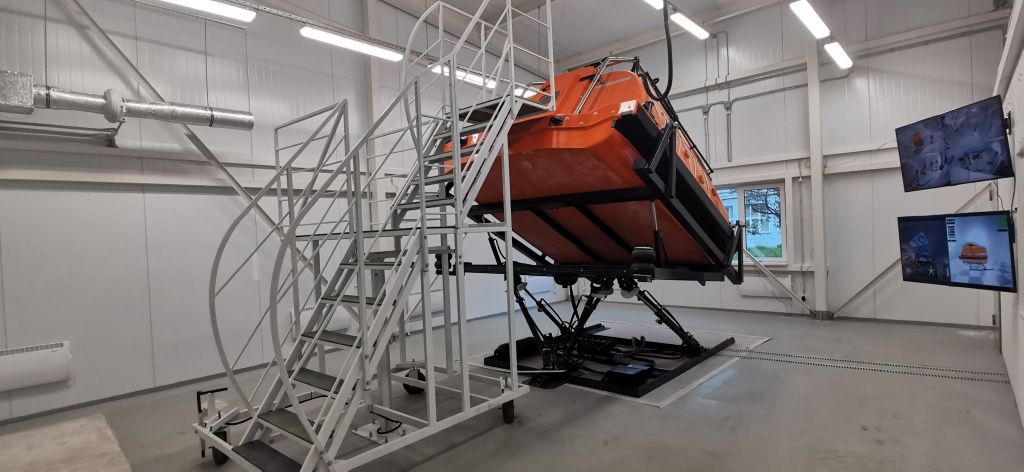
- Instructor WorkPlace (IWP),
- Student WorkPlace (SWP),
- Dynamic platform control module,
- Module for processing commands from the lifeboat controls.
- choice of the navigation area;
- adjusting:
- video and audio monitoring of what is happening inside and outside the cockpit.
- video recording for debriefing.
- emergency stop of the exercise, return of the simulator to its initial state.
- lifeboat operation, including:
- display of the surface situation..
- Open sea.
- A part of the sea near coastline, for drilling skills of intentional grounding a lifeboat.
- engine control panel buttons
- throttle
- main steering gearl
- release devices
- top light button
- search light button
- heated, dry, enclosed, well-lit, with dimensions: for the model of the lifeboat, platform and ladder with the embarkation station - at least (L x W x H, m) - 9 x 9 x 5; for the instructor's workplace - at least (L x W, m) - 2 x 2;
- a separate, well-ventilated or forced-cooled premises for a hydraulic oil station with dimensions of at least (L x W, m) - 2 x 2.
- three-phase electric power supply with a capacity of at least 10 kW.
- floor load of at least 2 t/sq.m.
- temperature not less than 10°C.
- humidity not more than 70%.
- supply and exhaust ventilation.
- FFLBS-A1 - full mission, on the dynamic platform, сlass A,
- FFLBS-A2 - full mission, without dynamic platform, сlass A,
- FFLBS-B - with simplified cabin and real control organs, сlass B,
- FFLBS-C - computer version with pseudo-real control organs, сlass С.
- Regulation VI/2 STCW Convention, Section A-VI/2 STCW Code, Table A-VI/2-1” “Specification of the minimum standard of competence in survival craft and rescue boats other than fast rescue boats”,,
- IMO Model Course 1.23 “Proficiency in Survival Craft and Rescue Boats (other than Fast Rescue Boats)” (2024 Edition),
- Section B-I/14 STCW Code “Guidance regarding the responsibilities of companies and recommended responsibilities of masters and crew members”,
- Regulation VI/1 STCW Convention, Section A-VI/1 STCW Code, Table A-VI/1-1 “Specification of minimum standard of competence in personal survival techniques”,
- OPITO Offshore Lifeboat Coxswain Training Standard..
Gangway, embarkation station and model of lifeboat
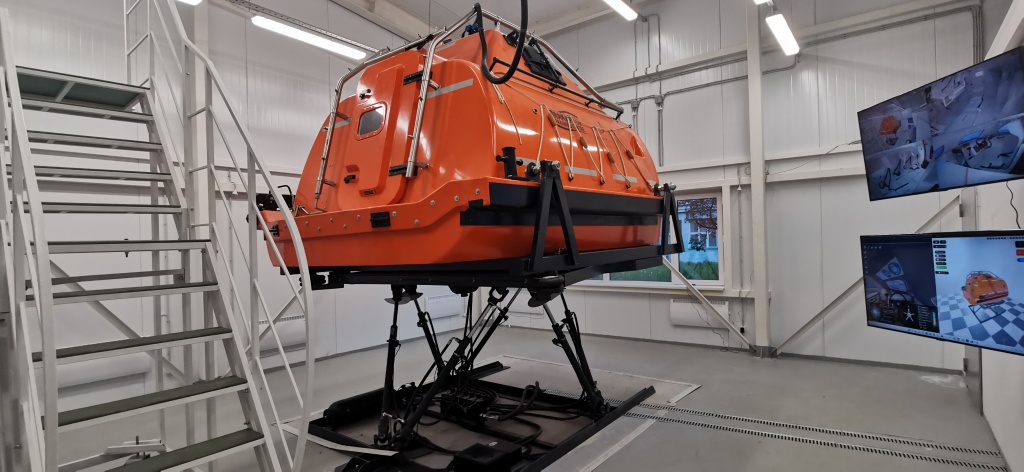
Model of lifeboat
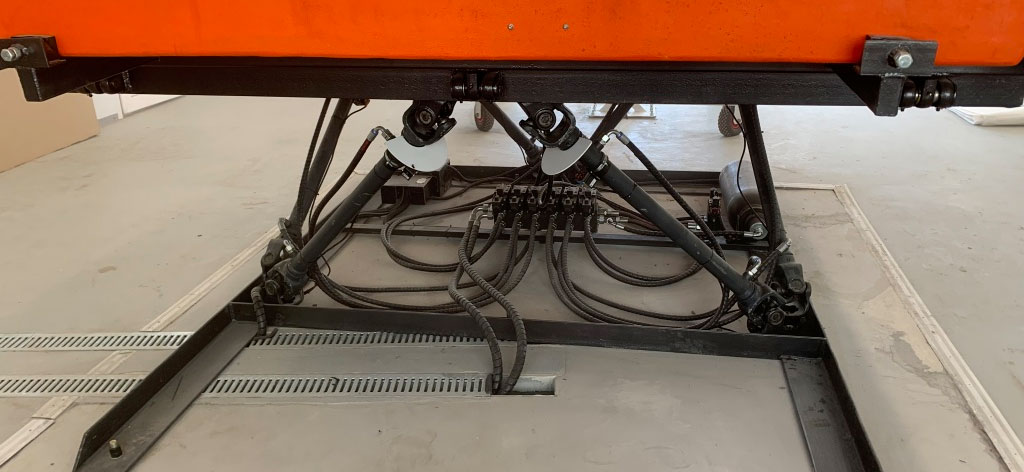
6 DoF dynamic platform
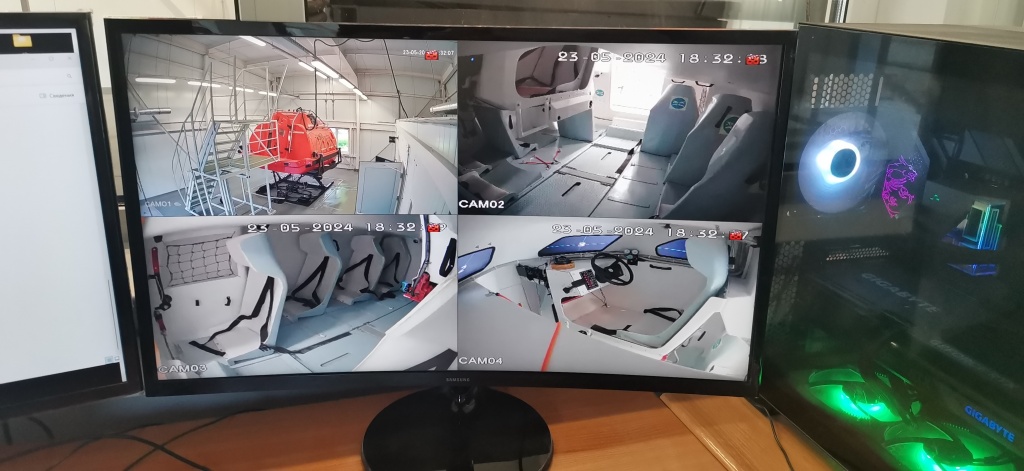
Video system control
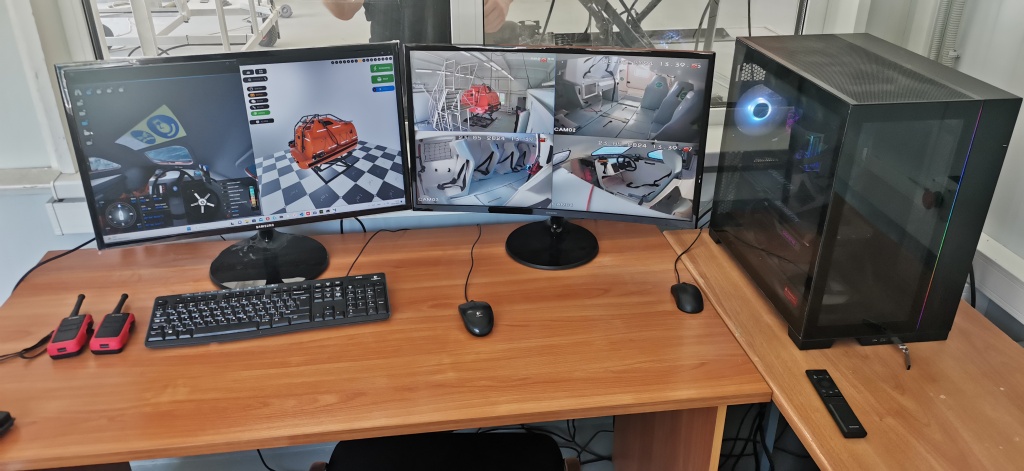
Instructor WorkPlace
Students walk up the gangway and embark the lifeboat and fasten the seat belts.
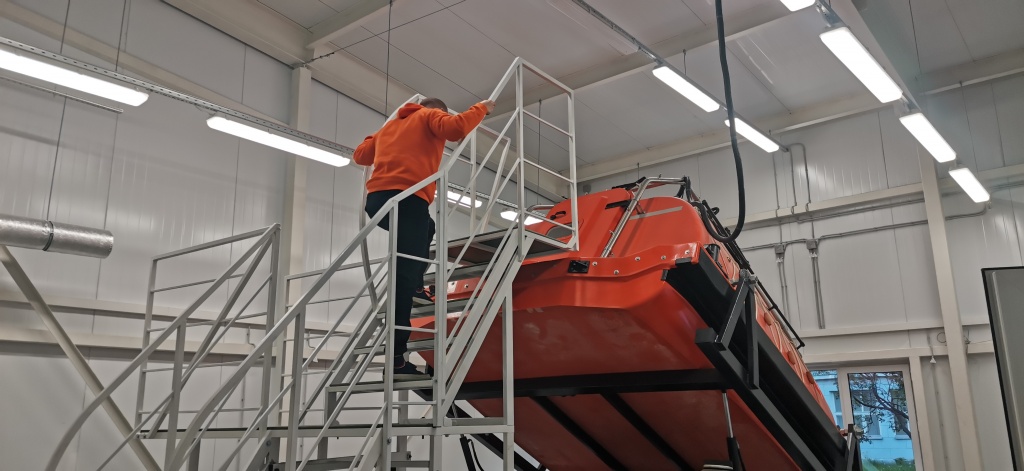
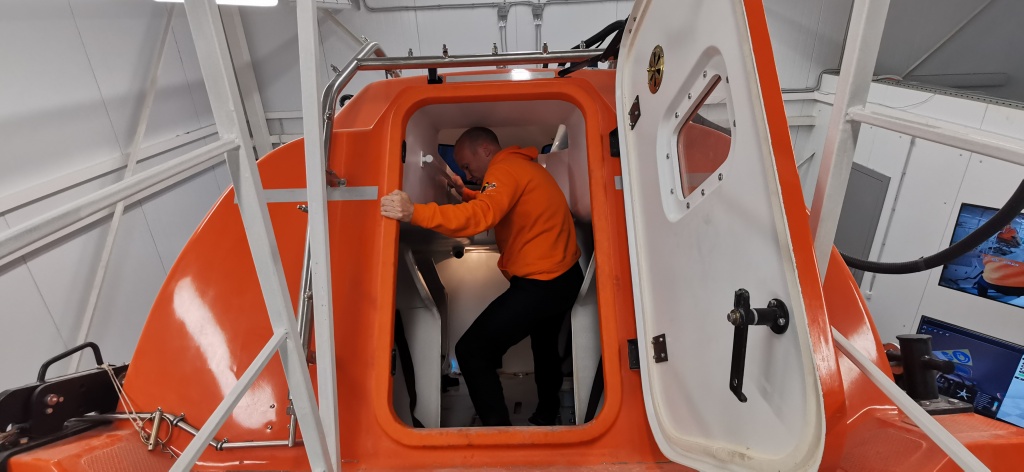
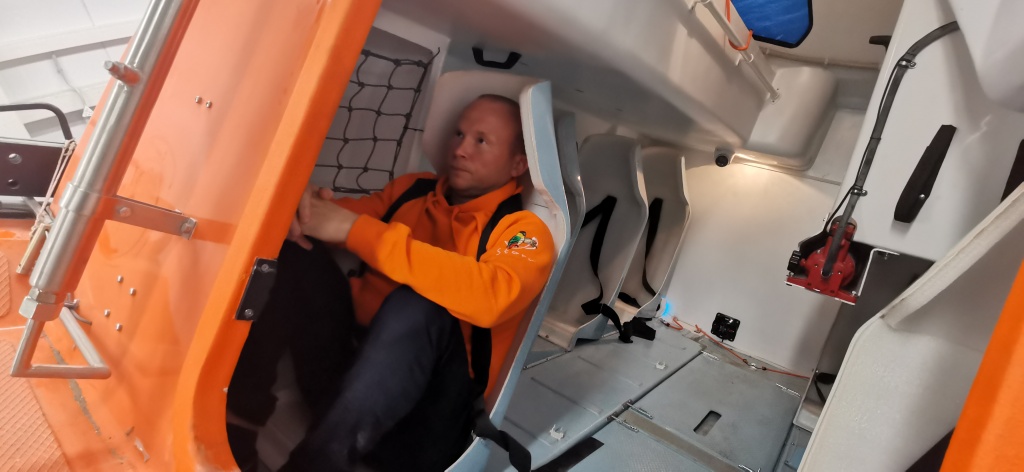
The coxswain takes place at the steering wheel.
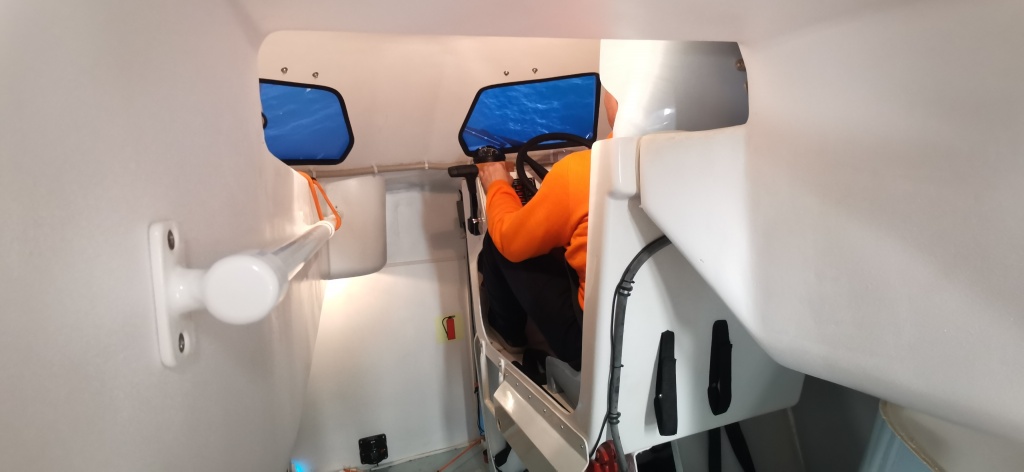
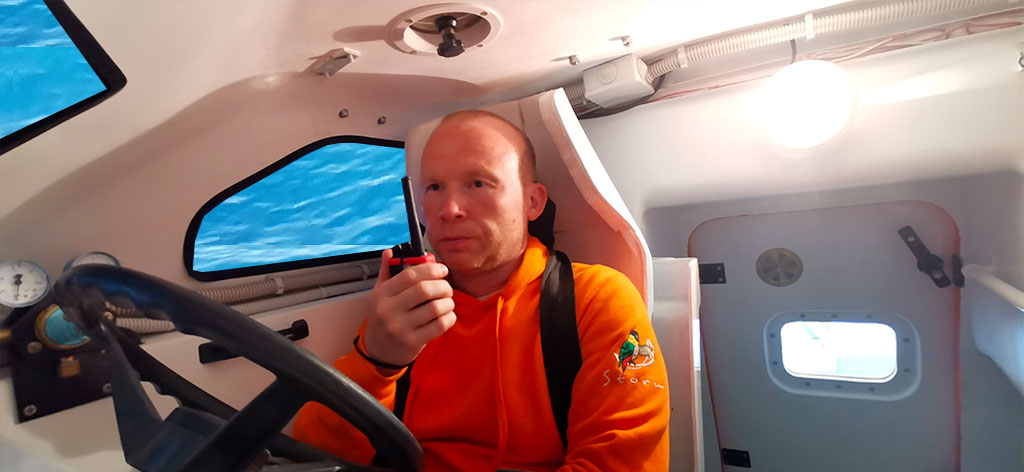
The instructor brings the lifeboat into “launching” position. In this position the lifeboat starts to wallow with the vessel in distress on which it is mounted.
The coxswain starts the engine and initiates free-fall launching. Entry into the water is not made perfectly, but taking into account the state of the sea.
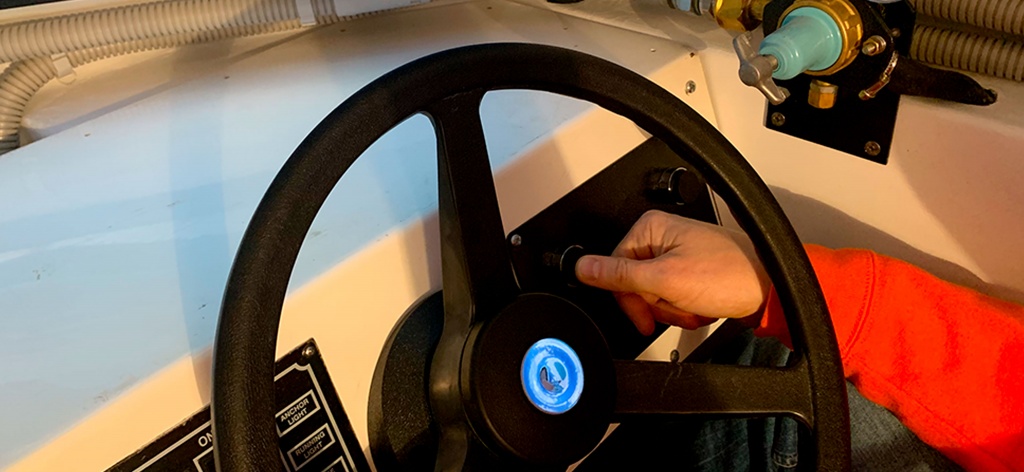
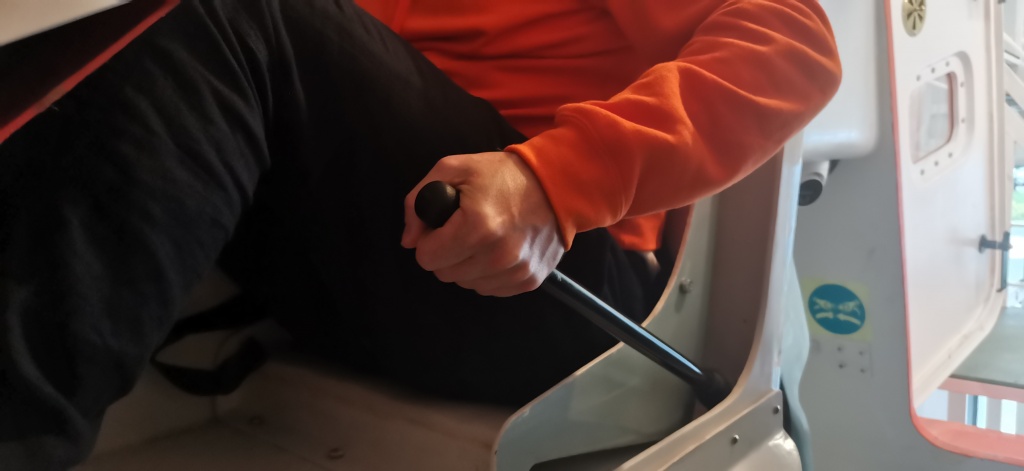
Then the coxswain clears the ship’s side and carries out handling the lifeboat in different weather conditions including rough sea. All students can feel some stress during launching, refloating and being in the lifeboat, but navigating in the safe manner.
Lifeboat model
The used lifeboat is a part of a real fire-retardant free-fall lifeboat model, in accordance with LSA Code, with the bow cut off. The bow section is closed by an end bulkhead made of the lifeboat hull material. The model is designed to seat a coxswain and 4 crew members.
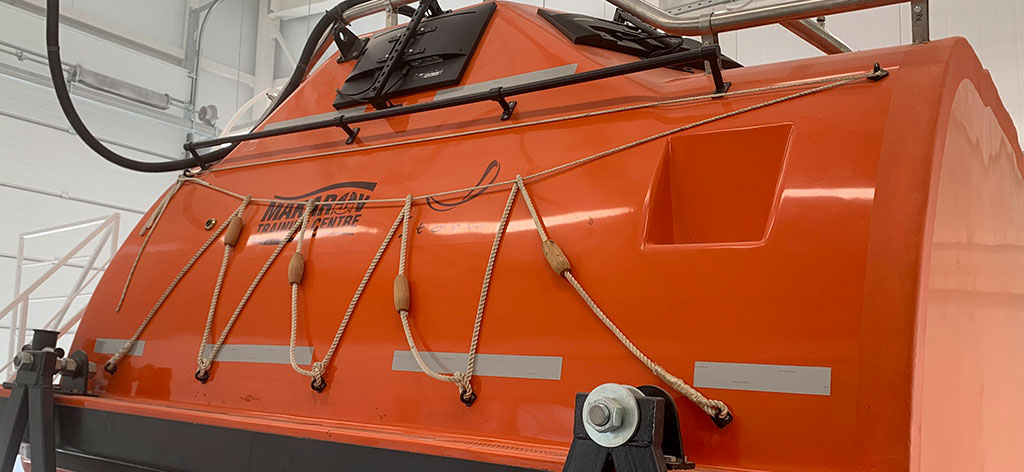
Lifeboat's hull and superstucture
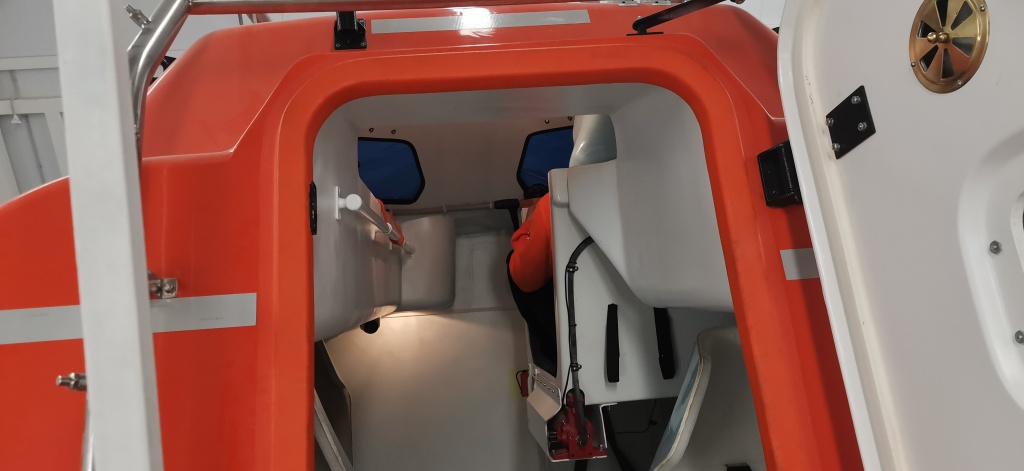
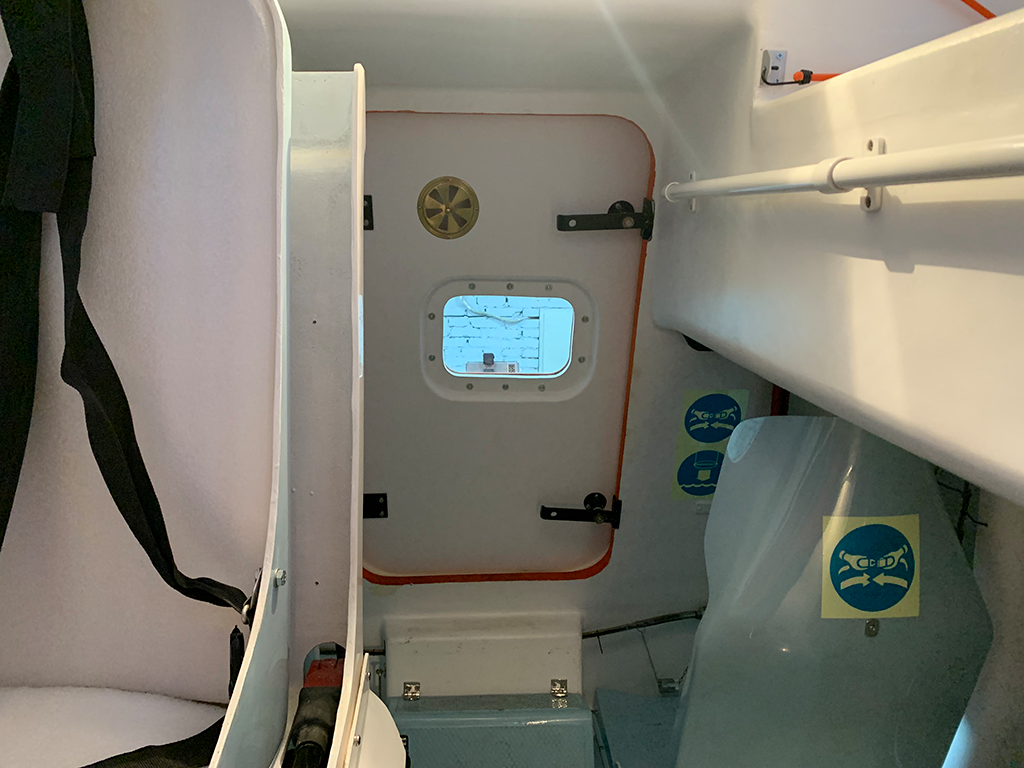
Inside lifeboat's cabin
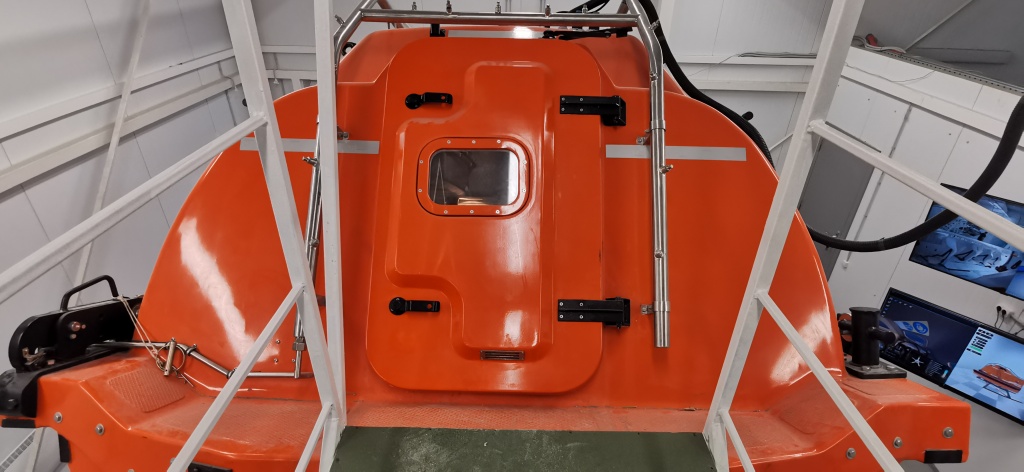
Door and clips
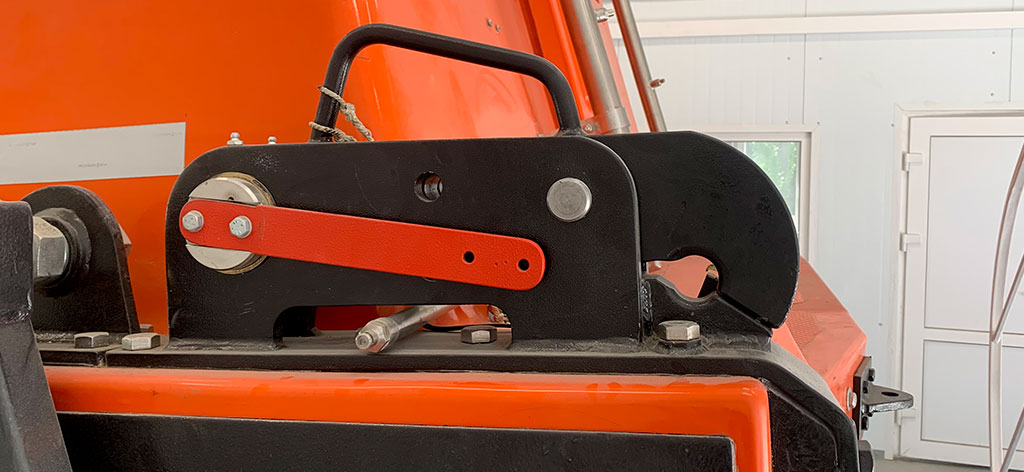
Release device hook
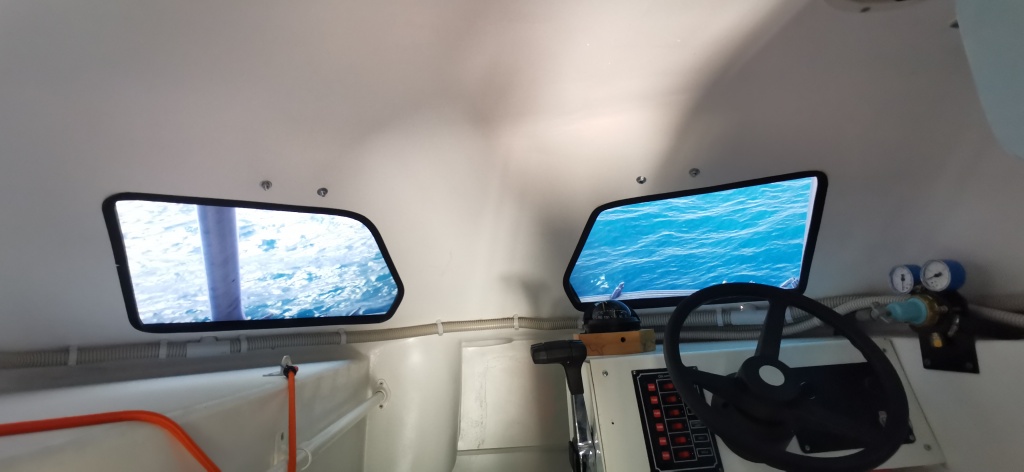
Illuminators
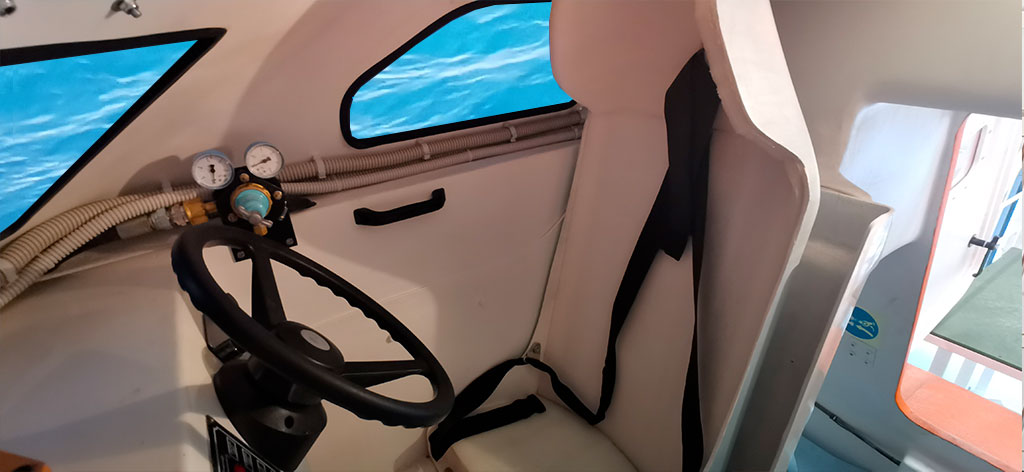
Coxswain's seat
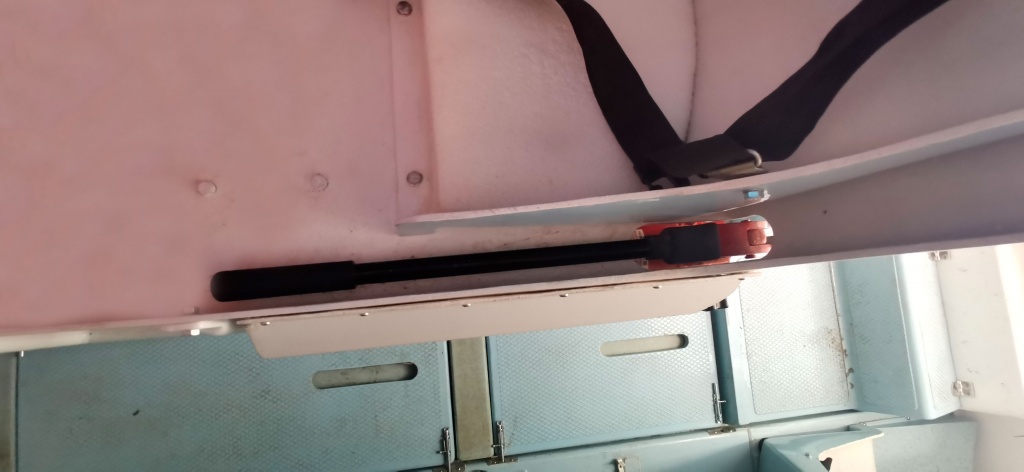
Release device distance lever
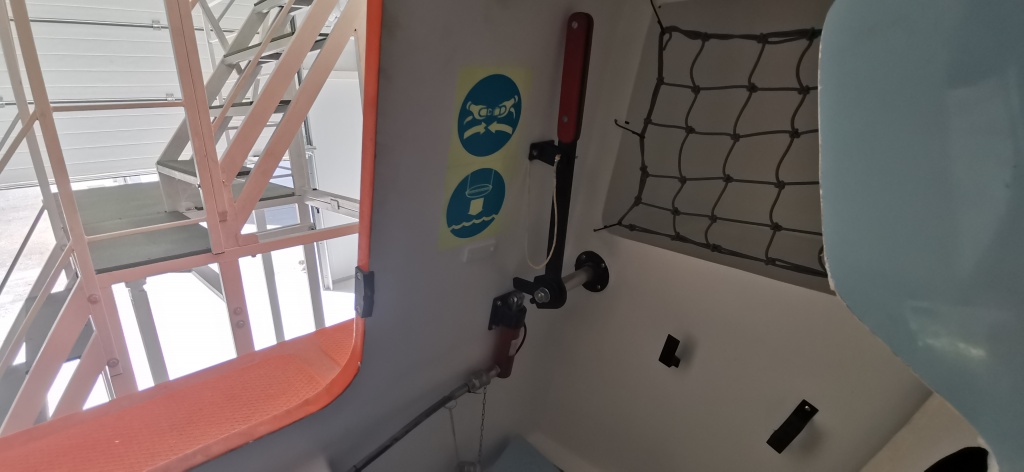
Release device emergency lever
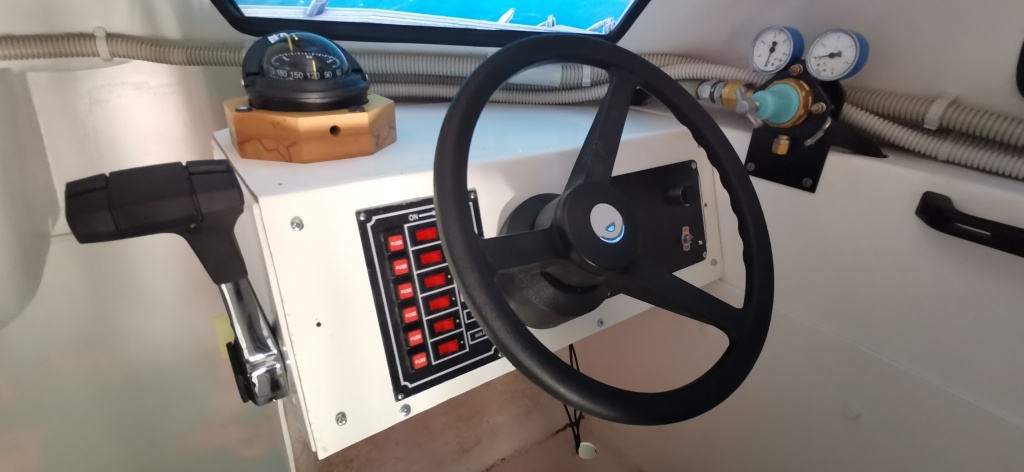
Control point
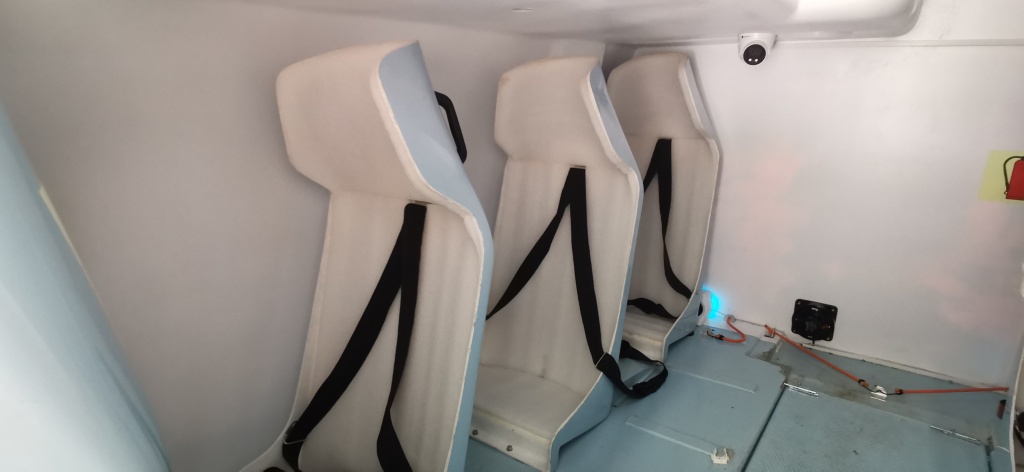
Seats
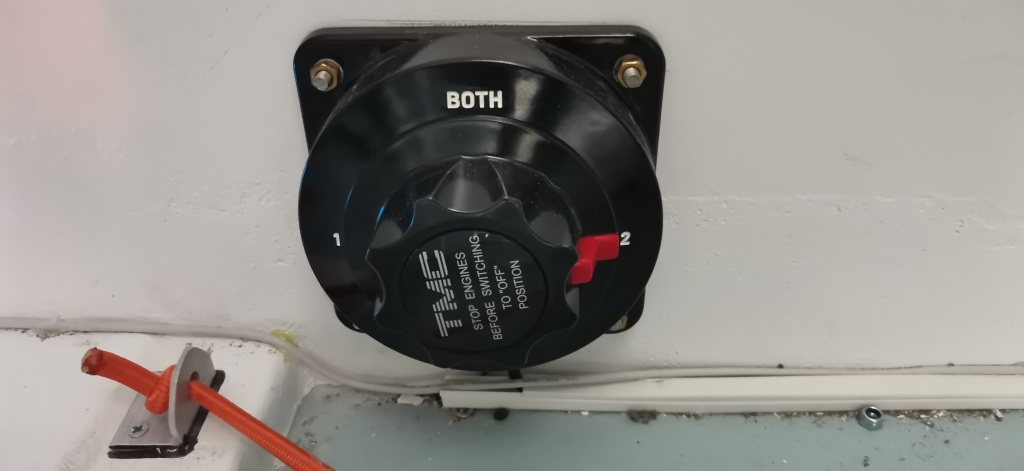
Battery switch
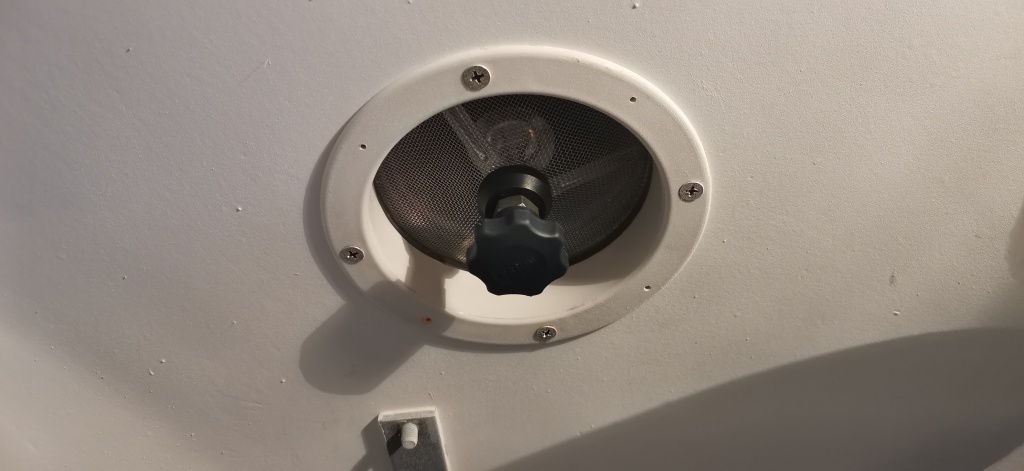
Ventilation head
At the request of the customer, the hull of the lifeboat can be marked with the special name of the ship or name of the organization and port of registry as well as logotype.
Dynamic platform
The dynamic platform is designed for mounting a model of a lifeboat with a crew of not more than 5 persons on it and ensures the movement of the lifeboat along the trajectories and at the speed set in the software, including free-fall launching and float free, as well as the behavior of the lifeboat on the water surface in rough sea.
Video equipment
A video surveillance system is installed in the cockpit of the lifeboat with information display to the instructor's workplace, and with the possibility of recording and archiving performance of exercises.
The software consists of:
IWP functions:
-
- wave height,
- visibility restrictions,
- time of day,
- lifeboat drift speed and direction.
SWP functions:
-
- operating an engine,
- free-fall launching, including the use of the main and emergency release device,
- clearing the distress ship’s side and lifeboat handling in rough weather and in different weather conditions,
- use of steering gear,
- intentional grounding a lifeboat,
Navigation areas:
Dynamic platform control module
The module controls the dynamic platform in order to ensure its movement along the trajectories corresponding to the free-fall launching and refloating, as well as the behavior of the lifeboat on the water surface in rough weather.
Module for processing commands from the lifeboat controls
The module provides processing commands from the following controls:Methodical guidelines for using the simulator
The simulator is supplied in the set with the guidelines for the use of the simulator, developed in accordance with the Technical description and operating instructions for the fire-retardant free-fall lifeboat.
Operating conditions of the simulator
Requirements for the premises for the delivery, installation, storage and use of the simulator:
Operating conditions:
Additional options
The simulator can be supplied with e-learning modules for theoretical education, multimedia training software for practice, and knowledge assessment software for testing, which are combined into training package for seafarers who are designated to take charge of lifeboats.
Configurations
FFLBS can be delivered in the following configurations:
Legislation

